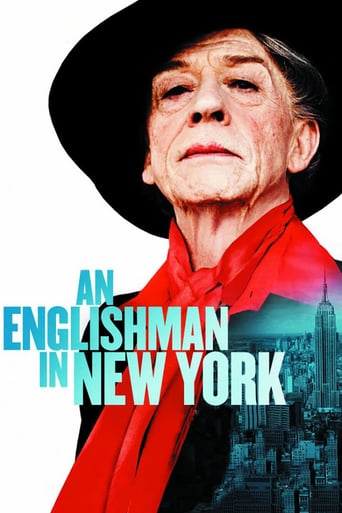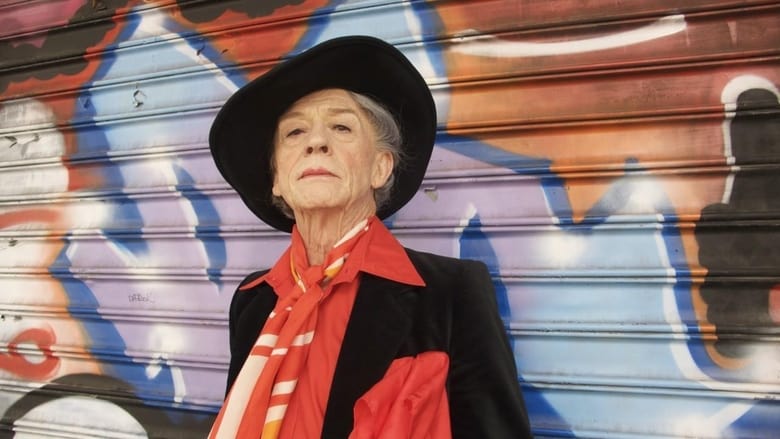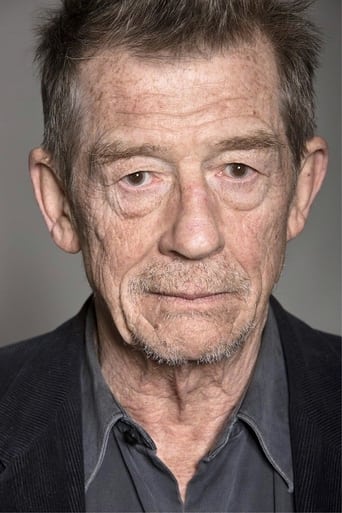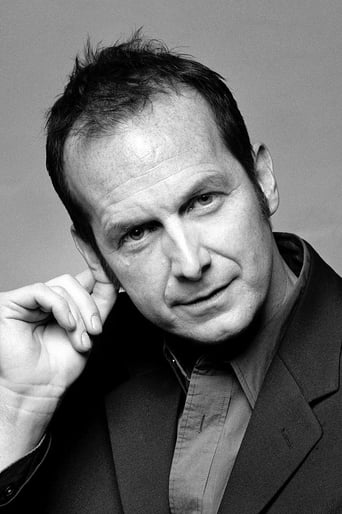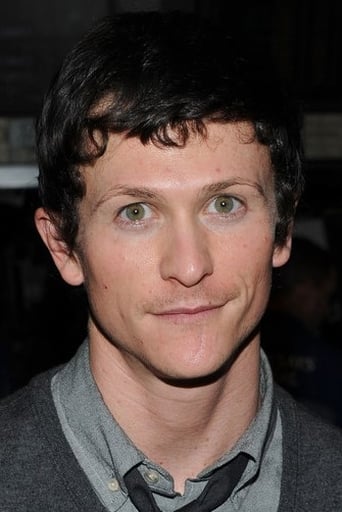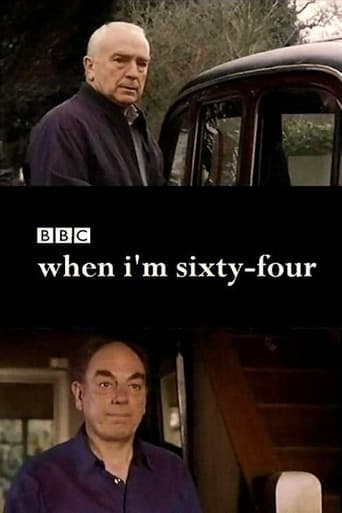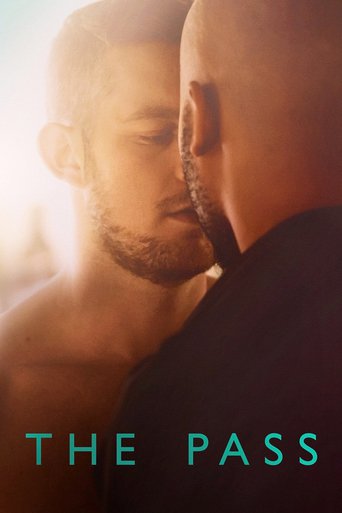An Englishman in New York (2009)
Biographical drama based on the last 20 years of Crisp's life. The literary figure and gay iconoclast emigrated to New York in 1981 and lived there until his death. The film observes Crisp in both his public and private lives, from his seemingly cavalier response to the outbreak of AIDS to his tender relationship with his friend Patrick Angus and his own response to growing old.
Watch Trailer
Free Trial Channels
Cast


Similar titles
Reviews
I am only giving this movie a 1 for the great cast, though I can't imagine what any of them were thinking. This movie was horrible
After playing with our expectations, this turns out to be a very different sort of film.
I think this is a new genre that they're all sort of working their way through it and haven't got all the kinks worked out yet but it's a genre that works for me.
True to its essence, the characters remain on the same line and manage to entertain the viewer, each highlighting their own distinctive qualities or touches.
bitter, profound, fascinating. story of a guru. like modern parable. a character. and a great performance. map of small things. and a great arena. seed of dark joy because the story of Quentin Crisp is out of categories. it seems be a fairy-tale, page of a history of homosexual freedom war, testimony about values and traces of Oscar Wilde style, a manifesto about reality behind illusions, a form of silent protest against ordinaries warm lies. each of this aspects is present in this movie. a film like definition of an air. or, only, circle of a small refuge garden. nothing else. only reflection about real nature of world. an old man in a large city. and its gestures, words, trips. as pieces of a lesson about yourself. or shadows of a continuous search of truth sense.
I thoroughly enjoyed this profile of flamboyant British raconteur Quentin Crisp, played mesmerizingly by William Hurt.Crisp can be inspiring to us all. He was openly gay before it became acceptable, and he risked his life to be out when he was. Any of us, regardless of sexual orientation, can be buoyed by his interesting challenges, i.e.,"Who would you be if the only opinion that mattered was yours?"..."Think of the people who've NEVER been used -- life's much harder for them!"Crisp was an original. Who, even these days, could draw crowds, night after night, that just want to hear him/her expound? This is a serious film that doesn't idealize its protagonist. Crisp was seriously humbled by his careless remark that AIDS was just a "fad." It was good that this comment didn't prove to be his undoing.I enjoyed the scenes between Hurt and Richard O'Hare, as an editor who eventually became the closest thing Crisp ever had to a son.This is a beautiful film and a great surprise.
This film is about Quentin Crisp's journey in New York and his new found celebrity status as a talk show host at the age of 70's."An Englishman in New York" continues the story that was left off 30 years ago. This time, Quentin Crisp becomes largely irrelevant in the gay community. Yet, he is embraced by the general public with his witty comments and humour. He fiercely tries to be himself in a different culture and a different era, but unfortunately things simply changed. What I get from the film is that he becomes irrelevant and out of touch with the modern day context. "An Englishman in New York" provides a sad portrait of his later life, and is a sharp contrast to what he used to be and what he represented.
It is not necessary to have seen John Hurt's previous portrayal of Quentin Crisp in "The Naked Civil Servant" to appreciate this new film, but it is interesting to consider the subtle but different tones of each. The first was a cotton-candy confection that delighted on its own terms in spite of being based upon Quentin's much more somber autobiography. The current film is also sweet, but it incorporates some of the more serious issues of Quentin's later life, namely his seemingly indifferent, cavalier response to AIDS and how he dealt with growing old. Quentin was misunderstood in life because people, gay and straight, viewed him as a harlequin; but, anyone who has had the pleasure of reading his books, which this film curiously barely mentions, knows that he was a sober, ferocious intellect who, while flamboyant in approach and appearance, was a product of his time and came to us as a famous person, late in life, inevitably possessing, in the 1970's, '80's, and '90's, at least some of the Edwardian notions that informed his youth in the 1920's and '30's. This film achieves the formidable task of presenting Quentin both as he appeared publicly and as he thought privately. One can only imagine how difficult it must have been to construct the script. It was inspired to have utilized the framework of Quentin's relationships with various people upon which to construct the biography. By showcasing Quentin's friendships with a literary figure (his friend from "Christopher Street" magazine), an AIDS figure (the young, anguished painter), and a performing artist, the film reflects important facets of his personality and helps to illuminate the sometimes perplexing concept of the world according to Crisp or what he in life famously termed "Crisperanto." Quentin's dialog in the film may sound epigrammatic to some; but, that is how the gentleman actually spoke, and he had a great deal to say.These considerations are perilously academic, however. What is important is that the film is, in and of itself, magnificent. One is tempted to observe that John Hurt does Quentin better than did Quentin himself. It is difficult to take one's eyes off of this intricately prepared, compelling actor. How astonishing are those scenes that show Hurt as Quentin: playing Queen Elizabeth I in a film, waxing ruefully upon the ravages of aging; as he really was, in his tiny apartment, hair down, balding, elderly, alone; tilting his head back, upon theater stages, in cafés, or while simply walking down the street, to achieve that rollicking laugh that so soothed and beguiled. Because portraying Quentin is by definition flashy, Hurt at first may appear mannered and theatrical; but, if one watches closely, he will realize that the actor knows precisely when less is more. His performance is, in fact, careful. It is vigorous but not exaggerated, and the effect is remarkable.Those who approach "An Englishman in New York" armed with old political animosities from the Act Up era are missing out, really, because, as troubling as Quentin seemed in his attitude towards AIDS, he did try to atone for it, in his own way (even people with huge and gracious hearts can sometimes find it impossible to say "I'm sorry"), and because he blazed so uniquely and with such genius in innumerable other areas. As a social commentator, essayist, novelist, film critic, philosopher, public speaker, and most unlikely of fashion plates, Quentin Crisp had no peer. For better or worse, he remains a gay -- and literary -- icon. This film does justice to this totally unique man both as a legend and as he was at heart, a caring, emotional creature whose ultimate love and humility will likely outlive the hats, scarves, and tinted hair that memorably punctuated his public persona.

